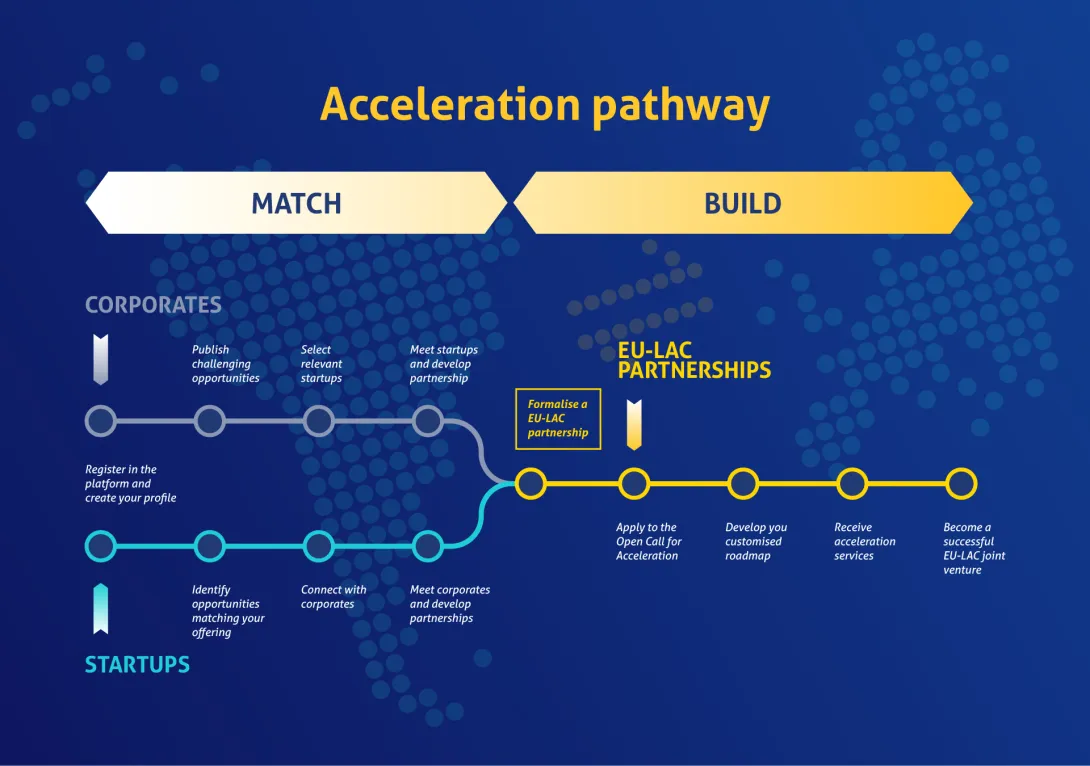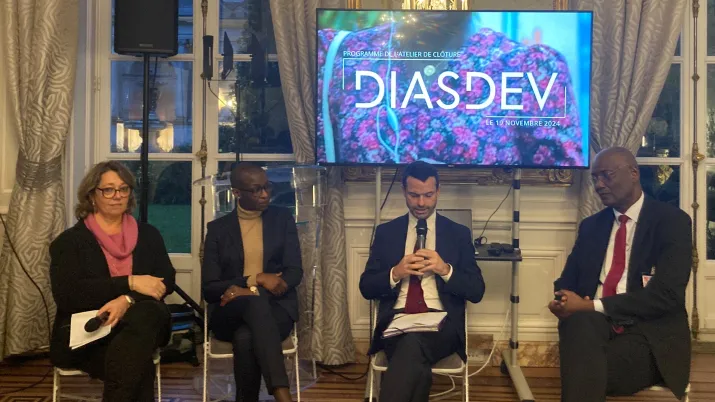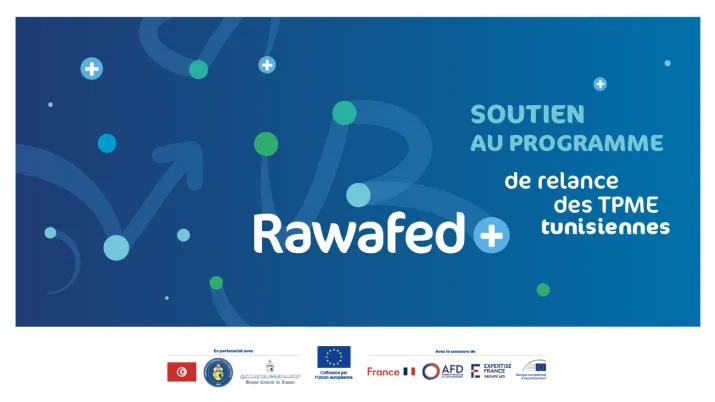Share the page
EU LAC Digital Accelerator: Building bridges between Europe and Latin America to accelerate digital innovation
Project
Published on

-
Project start date
-
Status
Ongoing
-
Project end date
-
-
Financing amount (Euro)
-
14m
-
Country and region
-
Argentina, Barbados, Brazil, Chile, Colombia, Ecuador, Jamaica, Mexico, Peru, Dominican Republic, Trinidad and Tobago, The Americas
-
Funders
-
Partners
-
Caribbean Export, EBAN, EBN, IESE Business School, Tecnalia, Tecnalia Colombia, Octantis, Wayra, IDB Lab
This flagship project promotes innovative strategic partnerships between European and Latin American companies to accelerate digital innovation.
A European initiative in response to the challenges of sustainable development
Digital innovation is a key tool for addressing the challenges of sustainable development. But the lack of strategic partnerships in many Latin American and Caribbean countries prevents them from accelerating this transformation.
The EU LAC Digital Accelerator project aims to bridge this gap by building partnerships between start-ups and large corporations in Europe and Latin America and the Caribbean. These partnerships foster economic development, increase local capacity, and support innovative solutions in connection with the Sustainable Development Goals (SDGs).
This digital accelerator is an initiative financed by the European Union with €14 million under the Neighbourhood, Development and International Cooperation instrument (NDICI) – “Global Europe” 2021-2027. The project is part of the EU-LAC Digital Alliance (€172 million), which aims to establish a sustainable digital ecosystem between Europe and Latin America. It also contributes to the European Union’s Global Gateway strategy, which promotes clean, secure and inclusive links across the world.
EU LAC Digital Accelerator: a digital accelerator to support start-ups and companies
The EU LAC Digital Accelerator initiative thereby aims to promote multi-stakeholder and private sector partnerships, increase competitiveness, and develop digital skills and innovation, by creating a regional digital accelerator between the European Union and Latin America and the Caribbean.
More specifically, it involves building partnerships between large corporations and start-ups or SMEs on issues related to innovation. Each pair of partners must be composed of a company from each continent.
The project, which started in 2023 and reaches completion in 2027, ultimately aims to create 100 such partnerships and thereby contribute to economic development in the Latin America and Caribbean region.
Project objectives
- Create 100 strategic partnerships between start-ups and large corporations by 2027
- Promote digital innovation in key sectors, such as health, energy and biofuels
- Build local capacity and create new economic and social opportunities
- Promote inclusive and sustainable solutions, with a specific focus on gender equality and the integration of Caribbean companies
Activities focused on cooperation and the exchange of know-how
The project is based on exchanges and collaborative workshops between the various stakeholders, with the aim of jointly building innovative solutions. The main activities organised are as follows:
- Creation of a digital platform to facilitate connections and exchanges between start-ups and companies
- Organisation of open calls for projects to identify promising partnerships
- Organisation of collaborative workshops to jointly build innovative solutions
- Expert support on issues such as open innovation, venture clients, and best collaborative practices
The project targets specifically issues related to connection, data governance, e-governance and cybersecurity.
Expertise France's role in developing cybersecurity policies
Cybersecurity ensures the integrity and resilience of communication systems and economic infrastructure, and protects countries’ sensitive information. To achieve this, Latin American and Caribbean countries must establish comprehensive cybersecurity strategies that include both technical development and strengthening of their regulatory frameworks. This includes identifying and protecting sensitive data, designing appropriate security measures and ensuring their proper implementation, establishing crisis management strategies, and fostering international cooperation in this area.
Expertise France supports Latin American and Caribbean countries in developing their cybersecurity legislation by strengthening the capacities of stakeholders, particularly policy makers and specialised institutions, to enable them to design sustainable, secure and inclusive digital policies and regulations.
A two-stage methodology: MATCH & BUILD
The acceleration pathway is based on a two-stage methodology that aims to connect companies and start-ups and formalise these partnerships on issues related to open innovation.
MATCH: Identify opportunities and build connections between start-ups and companies
For large corporations:
- Publish specific opportunities (“challenges”) on a dedicated platform
- Identify relevant start-ups
- Initiate discussions and establish partnerships
For start-ups:
- Register on the platform and identify opportunities aligned with their offers
- Connect with established companies
- Develop real partnerships
BUILD: Develop and structure partnerships
- Formalise an EU-LAC partnership
- Apply to the calls for projects (Open Calls) to benefit from acceleration services
- Develop a customised roadmap with experts
- Access specialised services (including business plans and prototyping)
- Launch innovative collaborative projects to address the actual needs identified by both parties for open innovation (joint ventures). For example, this includes venture clienting, corporate venture capital (CVC), and mergers and acquisitions

Examples of successful international partnerships between Europe and Latin America
TechSafe (Brazil-Portugal)
A Brazilian start-up specialised in digital physiotherapy solutions has been connected with a Portuguese hospital to address needs for the prevention of musculoskeletal diseases. Through the support from the programme, TechSafe’s SaaS solution has been integrated into a new market, which has improved care and expanded the reach of its technologies.
Rubisco (France-Colombia)
The French company Rubisco has worked with the Colombian subsidiary of L’Oréal to develop an innovative technology to analyse the durability of organic ingredients. This partnership has helped improve the composition of cosmetics, making the products greener and aligned with consumer expectations in terms of durability.
Bleeker and Infotrack (Spain-Chile)
The Spanish start-up Infotrack, a specialist in logistics solutions based on artificial intelligence, has partnered with Bleeker, a Chilean company. Together, they have developed innovative solutions for stock and supply chain management, using smart cameras and advanced analysis tools. This partnership has reduced logistical inefficiencies and upgraded management processes in the retail sector in Chile.
Find out about other examples and stories on the project website:
https://eulacdigitalaccelerator.com/
Resource for download
Similar projects
Regenerative nature-based tourism development
Ongoing
2025 - 2029
Funders : European Union, German State







